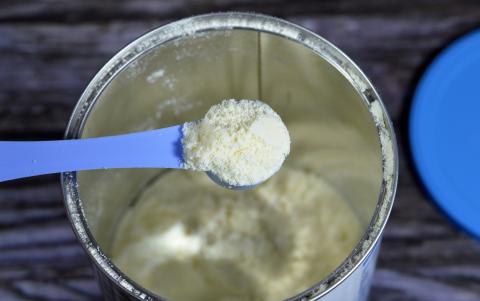Adding proteins to lipid-based nutrient supplements in Uganda: Which was best?
This is a summary of the following paper: Mbabazi J, Pesu H, Mutumba R et al. (2023) Effect of milk protein and whey permeate in large quantity lipid-based nutrient supplement on linear growth and body composition among stunted children: A randomised 2x2 factorial trial in Uganda. PLOS Medicine, 20. https://journals.plos.org/plosmedicine/article?id=10.1371/journal.pmed.1004227
Lipid-based nutrient supplements (LNS) have been shown to effectively treat undernutrition in multiple settings. To improve the nutrient profile and, specifically, raise the protein content, milk powder is often added to LNS as a primary ingredient. However, milk is a costly ingredient that raises the price per unit of LNS and may be less sustainable than alternatives.
To assess the effects of different proteins added to LNS, the researchers analysed secondary data from the Milk Affecting Growth, Cognition, and the Gut in Child Stunting (MAGNUS) trial. MAGNUS used a double-blinded, randomised 2x2 factorial design (Figure 1) (600 participants) with an untreated control group (150 participants). The trial tested the effects of four large quantity LNS formulations (Box 1).
Figure 1: 2 x 2 factorial design

Children aged 12–59 months with a height for age Z-score <-2 and weight-for-height ≥-3 were referred for assessment and eligibility screening from two study sites in eastern Uganda.
Box 1: How do the four interventions compare?The treatment group received one sachet of LNS (100g/day) for 12 weeks. The energy and macronutrient content of each intervention was matched. Each sachet provided 530–535kcal, which is around half the average daily energy requirement for a child. All daily micronutrient requirements were met. Nutrition counselling was offered to all caregivers upon entry to the study. Milk protein: Dry milk powder, which is the de facto ingredient in many LNS formulations. May support growth and fat-free mass accretion. Whey permeate: A byproduct of cheese-making, which is significantly cheaper than milk powder. Proposed as an alternative to milk powder, although its protein content is significantly lower. Soy protein: Non-dairy alternative protein source, which is less expensive and more sustainable than milk protein. Some evidence that soy may be less effective than dairy for growth and recovery1, although further research is required. Maltodextrin: Carbohydrate-based, inexpensive additive used as a thickening agent and preservative in processed foods. No fat or protein content. No known therapeutic benefit for this population. |
Milk protein and whey permeate resulted in no differences in height, but milk protein more readily increased fat-free mass. Adding dairy to LNS did not appear to offer further benefits for linear growth or body composition in this group. Unsupplemented children continued to become more stunted, whereas supplemented children had a 0.17 Z-score recovery in height while also gaining fat-free mass.
”œSupplementation with LNS, irrespective of milk, supports linear catch-up growth and accretion of fat-free mass, but not fat mass”
The study assessed numerous secondary outcomes that are beyond the scope of this summary. Given the overall findings, the authors propose that large quantity LNS should be considered in programmes to treat stunting.
The study featured robust methodology and an appropriate sample size based on the effect size estimates. There was a low dropout rate and minimal missing data. Randomisation and double blinding increase the validity of results, so we can interpret these findings with a high degree of confidence. The researchers opted to study children aged 12–59 months to minimise breastfeeding confounding. We should be cautious when extrapolating these findings to other age groups.


